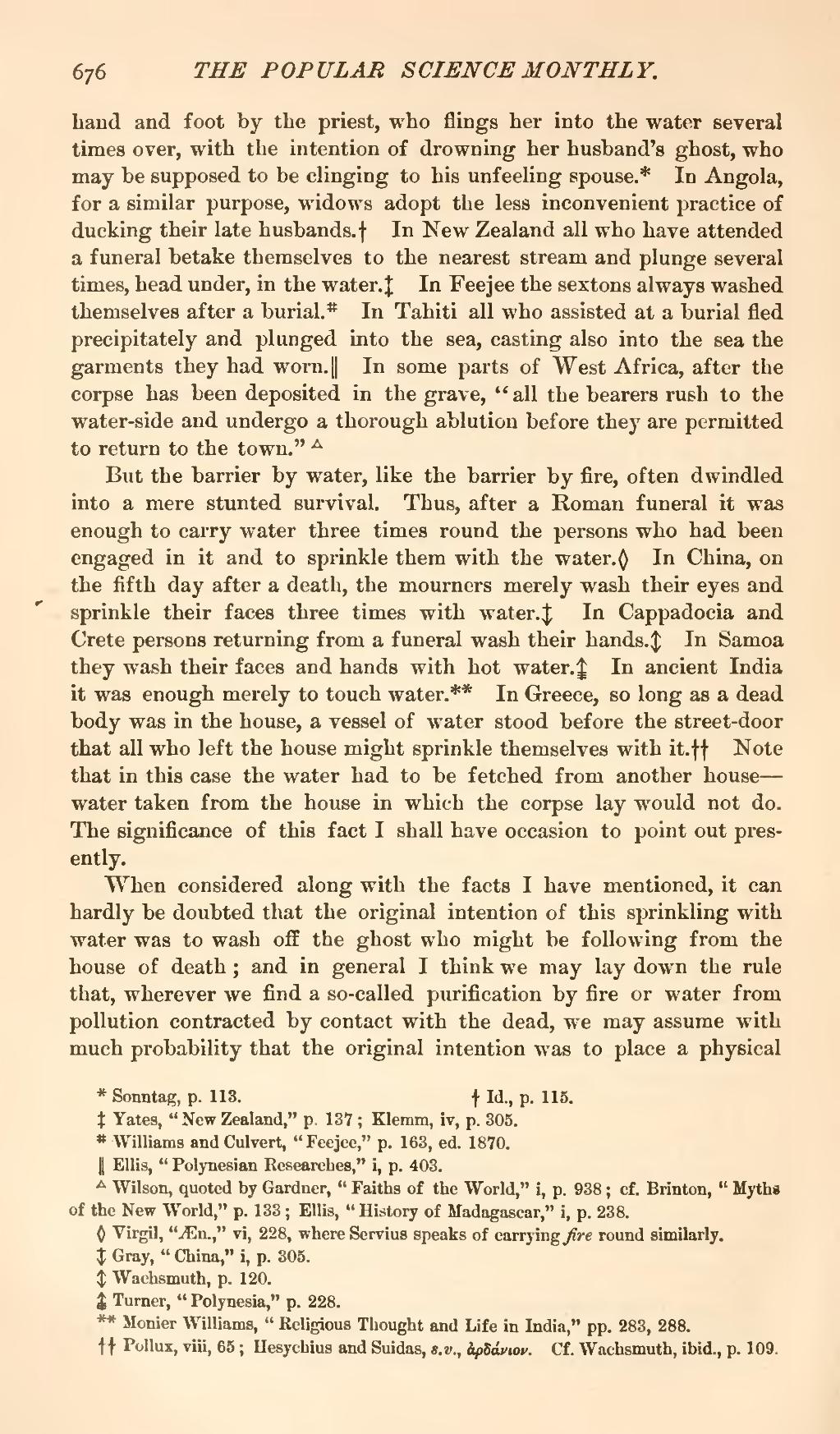hand and foot by the priest, who flings her into the water several times over, with the intention of drowning her husband's ghost, who may be supposed to be clinging to his unfeeling spouse.[1] In Angola, for a similar purpose, widows adopt the less inconvenient practice of ducking their late husbands.[2] In New Zealand all who have attended a funeral betake themselves to the nearest stream and plunge several times, head under, in the water.[3] In Feejee the sextons always washed themselves after a burial.[4] In Tahiti all who assisted at a burial fled precipitately and plunged into the sea, casting also into the sea the garments they had worn.[5] In some parts of West Africa, after the corpse has been deposited in the grave, "all the bearers rush to the water-side and undergo a thorough ablution before they are permitted to return to the town."[6]
But the barrier by water, like the barrier by fire, often dwindled into a mere stunted survival. Thus, after a Roman funeral it was enough to carry water three times round the persons who had been engaged in it and to sprinkle them with the water.[7] In China, on the fifth day after a death, the mourners merely wash their eyes and sprinkle their faces three times with water.[8] In Cappadocia and Crete persons returning from a funeral wash their hands.[9] In Samoa they wash their faces and hands with hot water.[10] In ancient India it was enough merely to touch water.[11] In Greece, so long as a dead body was in the house, a vessel of water stood before the street-door that all who left the house might sprinkle themselves with it.[12] Note that in this case the water had to be fetched from another house—water taken from the house in which the corpse lay would not do. The significance of this fact I shall have occasion to point out presently.
When considered along with the facts I have mentioned, it can hardly be doubted that the original intention of this sprinkling with water was to wash off the ghost who might be following from the house of death; and in general I think we may lay down the rule that, wherever we find a so-called purification by fire or water from pollution contracted by contact with the dead, we may assume with much probability that the original intention was to place a physical
- ↑ Sonntag, p. 113.
- ↑ Id., p. 115.
- ↑ Yates, "New Zealand," p. 137; Klemm, iv, p. 305.
- ↑ Williams and Culvert, "Feejee," p. 163, ed. 1870.
- ↑ Ellis, "Polynesian Researches," i, p. 403.
- ↑ Wilson, quoted by Gardner, "Faiths of the World," i, p. 938; cf. Brinton, "Myths of the New World," p. 133; Ellis, "History of Madagascar," i, p. 238.
- ↑ Virgil, "Æn.," vi, 228, where Servius speaks of carrying fire round similarly.
- ↑ Gray, "China," i, p. 305.
- ↑ Wachsmuth, p. 120.
- ↑ Turner, "Polynesia," p. 228.
- ↑ Monier Williams, "Religious Thought and Life in India," pp. 283, 288.
- ↑ Pollux, viii, 65; Hesychius and Suidas, s.v., ὰρδάνιον. Cf. Wachsmuth, ibid., p. 109.
